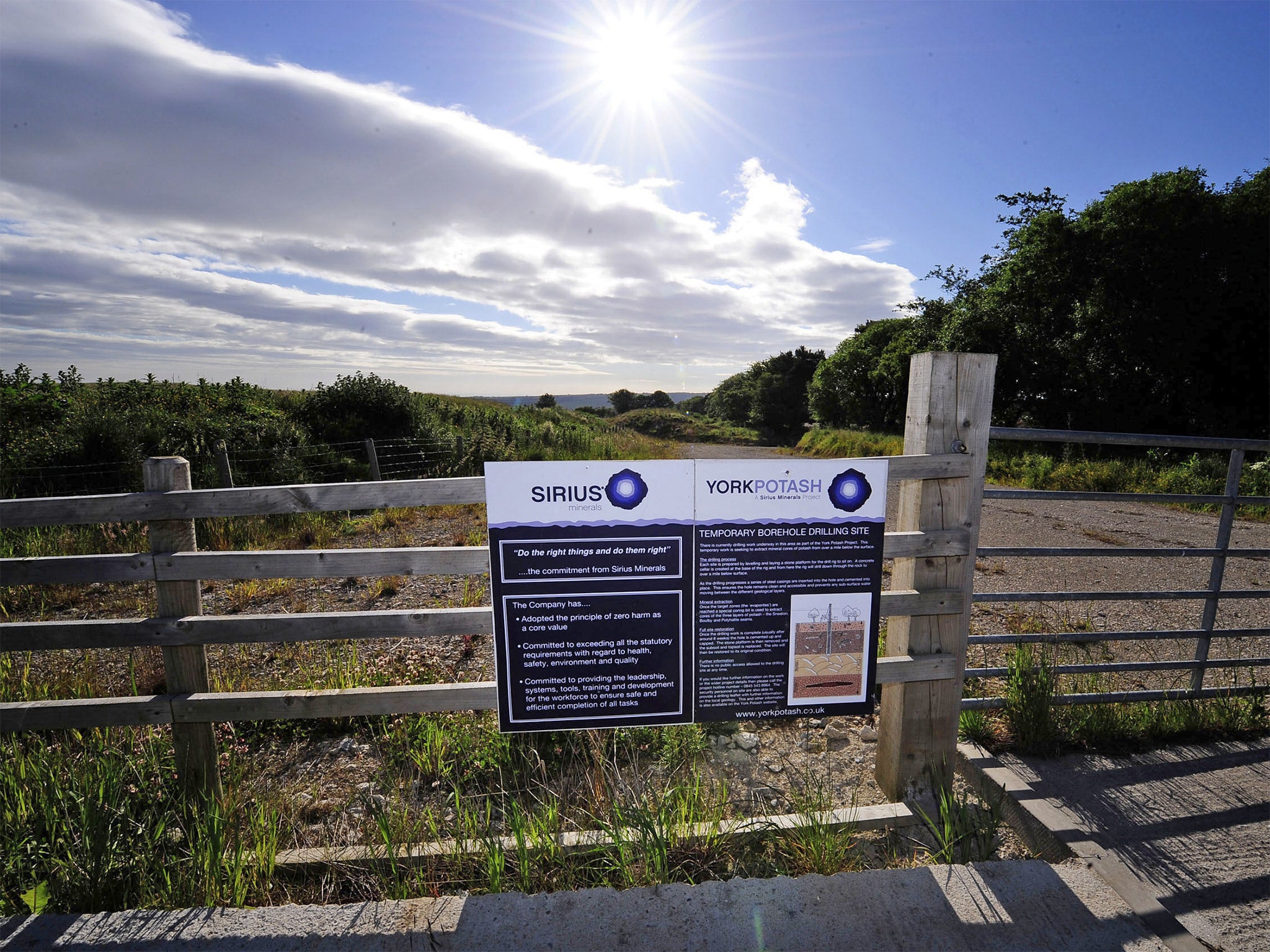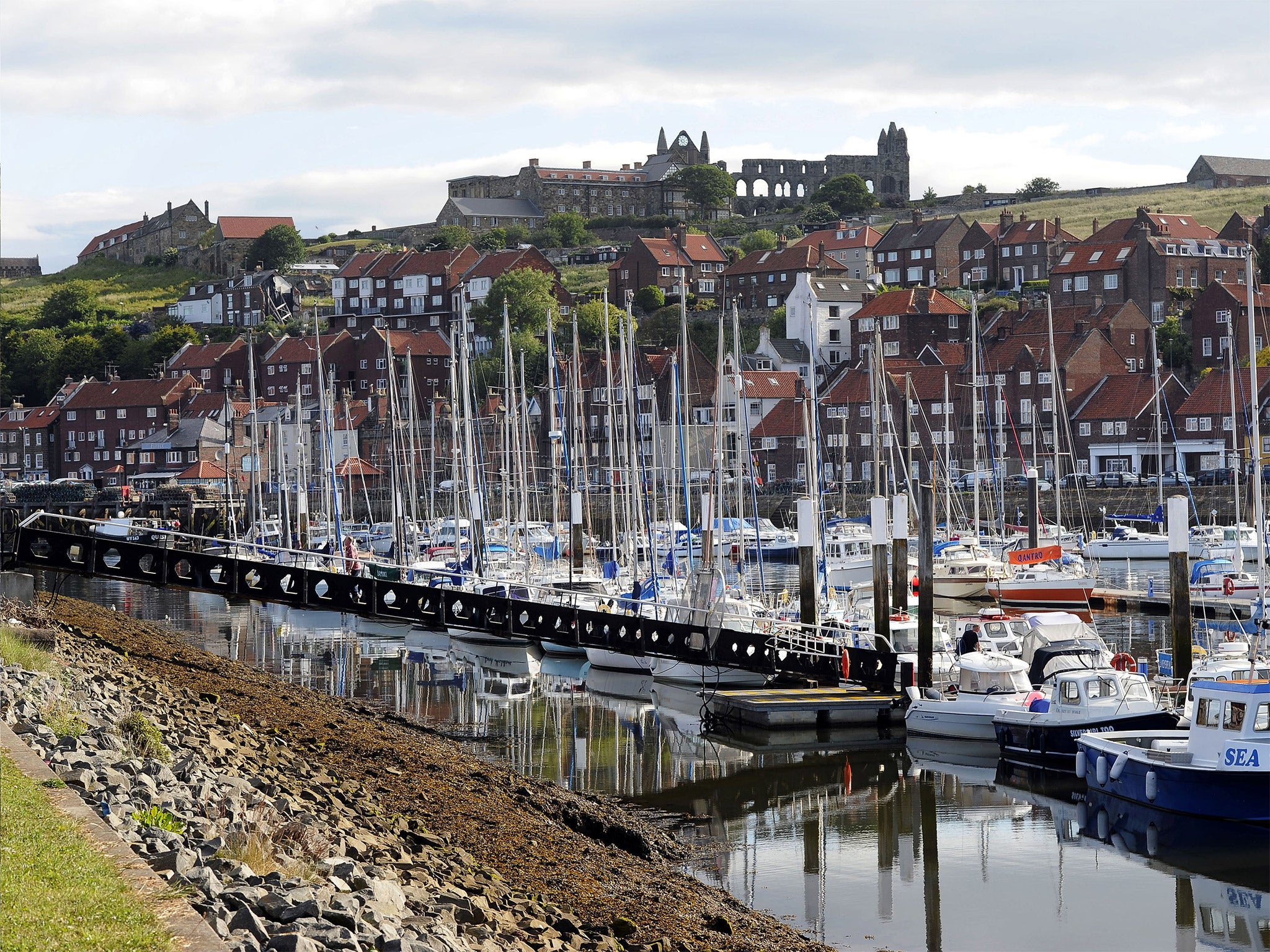North York Moors: ‘Test case’ national park mining project gets go-ahead
Members voted 8 to 7 in favour of the development, despite opposition from 29 environmental groups

One of the world’s biggest potash mines is to be dug in the picturesque North York Moors National Park after the park’s planning committee placed commercial consideration over environmental concerns and gave the £1.7bn project the green light.
The members voted 8 to 7 in favour of the development following a day’s discussions about the controversial proposal, despite opposition from 29 environmental groups who described it as a “huge threat” to the moors.
The mineral mine, near Whitby, would be one of the biggest developments in a UK national park for decades and could pave the way for further large-scale projects in protected areas.
Under the proposals, the UK mining company Sirius Minerals wants to dig a mile-deep shaft on the fringes of the park to tap a huge seam of potash, a mineral used as a fertiliser. It hopes the mine could last for 100 years or more.
The company says the project would be unobtrusive, directly creating at least 1,000 local jobs and another 1,000 jobs indirectly in North-east England. It says hundreds more people would be employed during the five-year construction phase. Business leaders have called it the biggest private investment project in the north of England “by a billion miles”.

Debating the proposal at Sneaton Castle, Whitby, before the vote, the planning committee of the park authority appeared to be broadly in favour of the development.
“We have the opportunity to provide a secure economic future for many people in this area and beyond and to attract investment we have so desperately needed for so long,” said member David Walker.
He added: “The opportunity this creates, both for Britain and North Yorkshire, is exceptional. What clinches it for me is that most of the impacts are short-term, whereas most of the benefits are long-term.”
But the proposals have come up against widespread opposition from campaign groups, who argue that it will destroy the character of the area along with the tourist trade, which provides the region’s biggest source of income.

A consortium of 29 campaigning organisations – including the Campaign to Protect Rural England (CPRE) and the National Trust – urged councillors and other panel members to reject the proposals, calling the mine a “huge threat” to the North York Moors and a “critical test” of the national parks ideal.
In a letter to the committee, the 29 organisations in the consortium said they were concerned about the implications for all national parks if the mine is allowed.
“We do not consider that [Sirius Minerals subsidiary] York Potash Ltd has provided sufficient evidence to demonstrate the national need,” it said. “Similarly, there is insufficient evidence that alternative sites outside the national park have been adequately considered.”
In response to the approval of the scheme, the Campaign for National Parks called for a public inquiry and said it may legally challenge the decision. “We have long maintained that this project is completely incompatible with national park purposes and that the promised economic benefits could never justify the huge damage that it would do to the area’s landscape and wildlife, and to the local tourism economy,” it said in a statement.
The scheme was backed by Conservative MP for Scarborough and Whitby Robert Goodwill, Labour MP for Redcar Anna Turley and Kevin Hollinrake, Conservative MP for Thirsk and Malton.
Sirius wants to build on the site, near the village of Sneaton, to access 1.3 billion tonnes of polyhalite discovered below the Yorkshire coastline.
Geologists believe this is the world’s biggest and best-quality supply of the mineral. The proposed site is around 2.5 miles south of Whitby.
Join our commenting forum
Join thought-provoking conversations, follow other Independent readers and see their replies
Comments
Bookmark popover
Removed from bookmarks